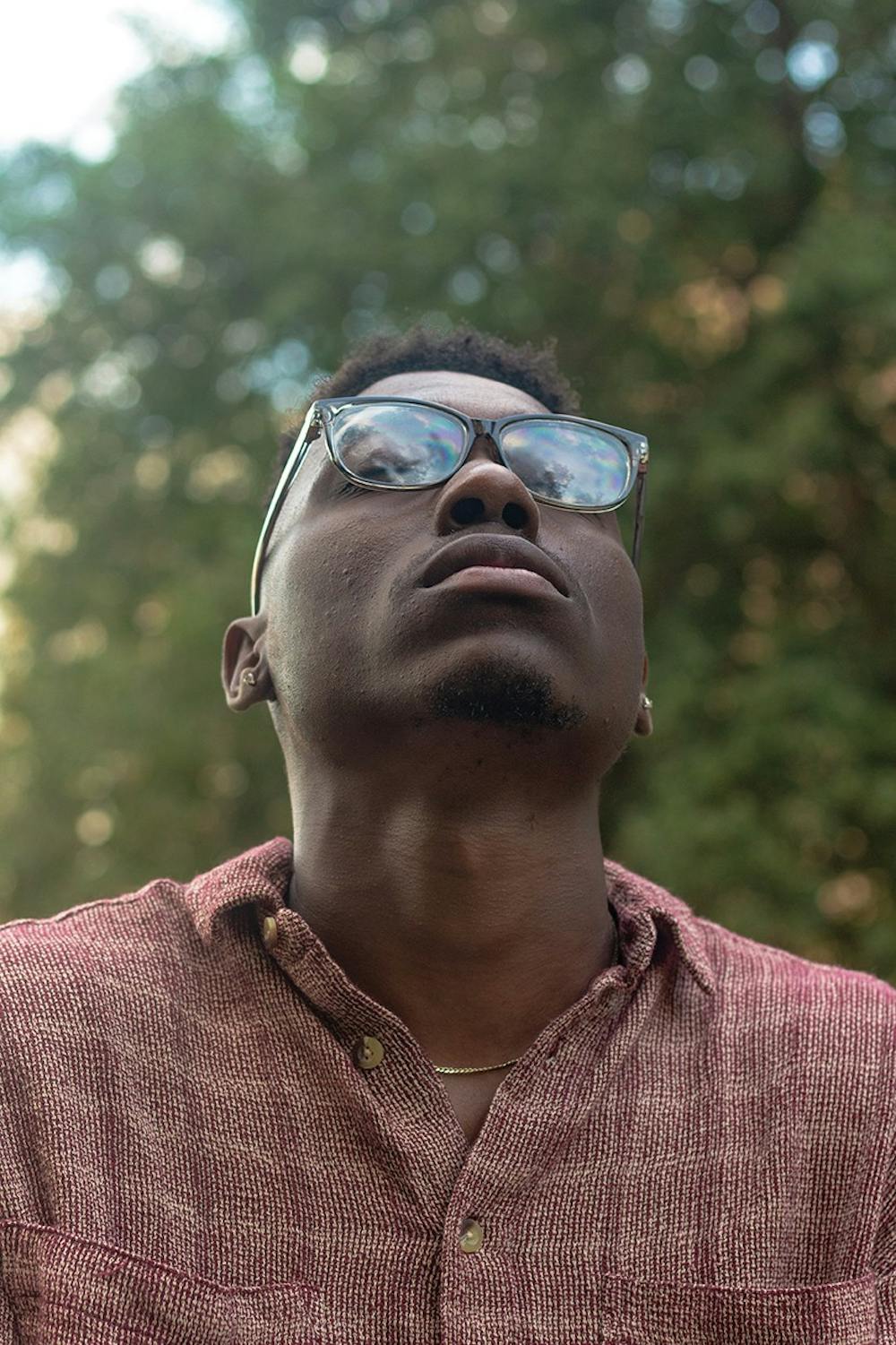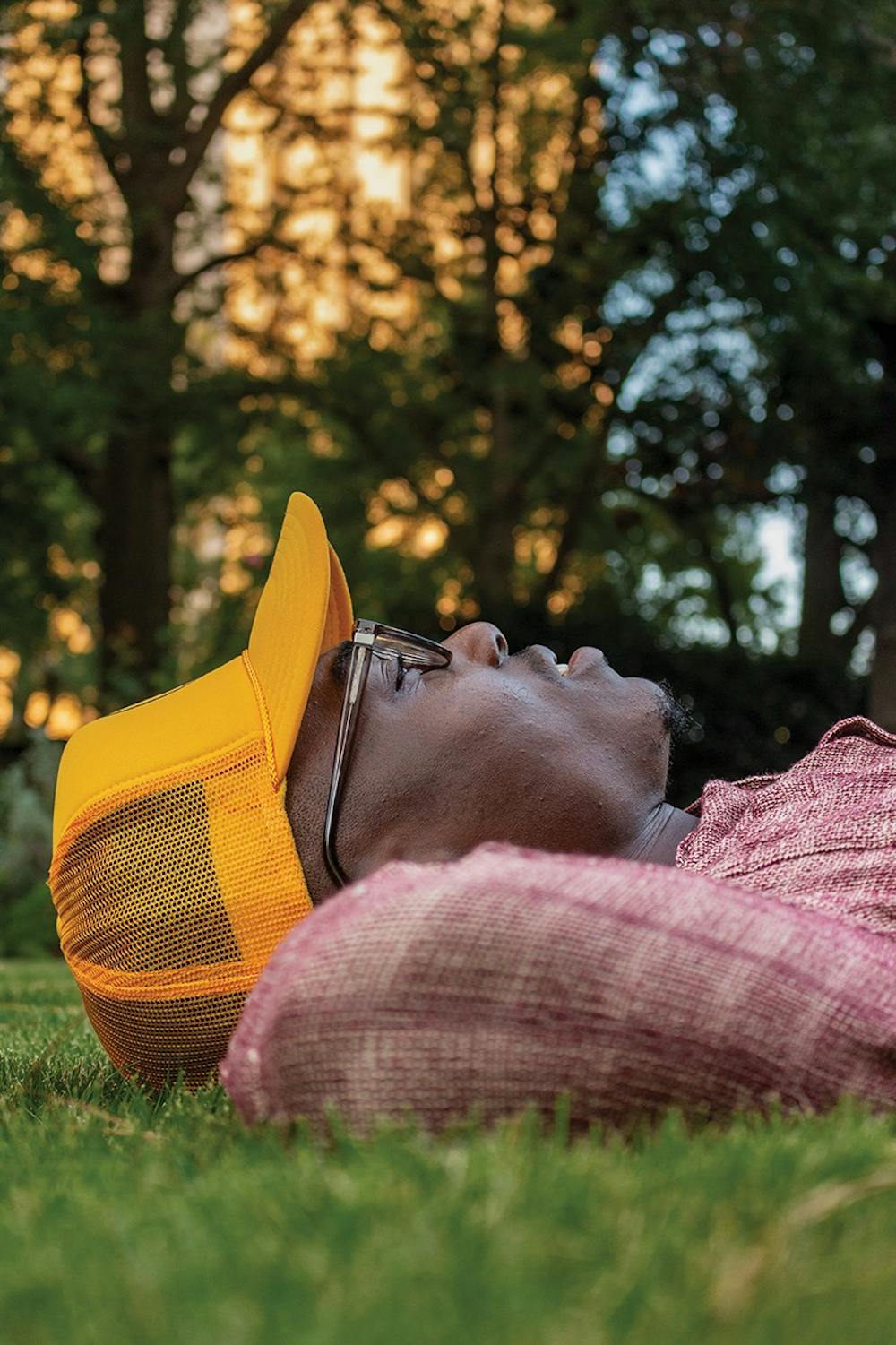“I’m good” is the biggest lie I ever told another person. It’s also the biggest lie I ever told myself.
For over four months, I was in a constant battle with myself. A field of dark energy trailed me everywhere I went and I couldn’t outrun it no matter how hard I tried. I hated waking up every morning because I already knew how the day would go. I would get up and try to convince myself that today was going to be different — that I would finally overpower my demons once and for all and be myself again. As soon as I stepped foot on my school’s campus, though, anxiety would inevitably take over the wheel and shove me into the passenger seat of my own mind. I lived in my head with it constantly. It became my best friend and my worst enemy at the same time.
I walked around every day paralyzed by an irrational sense of fear, lost in a sea of a thousand bodies and feeling like all of their eyes were watching my every move. I avoided familiar faces on purpose so I wouldn’t have to talk to them. On the rare occasion somebody I knew did catch me out, I’d flash a fake smile and try to project some kind of confidence when they’d ask me how I was doing. I always responded with “I’m good,” mostly trying to convince myself that it was true and that this state of being would pass with time. The day that I started hyperventilating on campus and had to rush back to my apartment because I was having a panic attack was the day I realized it wasn’t all good.
This cycle of me going nowhere fast lasted for months. Disillusionment with myself and others kicked in. Anxiety whispered dark thoughts in my head on a daily basis:
“Everybody’s living better than you.”
“You’re fake.”
“Your friends ain’t really your friends.”
“People talk shit about you when you’re not around.”
“They think you’re weird.”
“You’re gonna be alone for the rest of your life.”
“Nothing you do or say matters to anyone.”
“You’ll never reach your full potential.”
“If you died today, nobody would care.”

I distanced myself from a lot of close friends and associates, ghosting a few altogether. I stopped attending meetings for organizations I was a part of and stopped showing up to extracurricular events. I told myself nobody cared if I was here or there, anyway. I started posting less on social media even though I was still actively online, watching everybody else live their lives from a distance. Some days, I wouldn’t even go to class because I didn’t want to deal with the overwhelming pressure of being around people. The four walls of my room became the only place I felt safe and free to be myself, so that’s where I spent most of my time. I would lie in bed for hours on end and watch whatever was new on Netflix to escape my own mind enough to last me until the next day, when the cycle repeated itself.
I was not productive at all during this time period. Anxiety robbed me of my confidence and my creativity. Sometimes I would sit in front of a screen with a blank page for hours and walk away from it, that same page still unblemished. The creative spark as a writer I used to have was nowhere to be found. I’d waste hours binge-watching videos on YouTube and looking up irrelevant topics on Google instead of doing homework.
I became a perpetual slacker. I went to all of my classes unprepared. I felt overwhelmed with responsibility at all times and as a result, I ended up not fulfilling any of those responsibilities. I lost several big opportunities because of this, including being cut from a program where I could have been able to develop a feature-length screenplay alongside a Hollywood movie producer. The losses kept piling up in both my personal and professional life. Not to mention a worldwide shift was beginning to take place during the early stages of COVID-19.
I told myself I’d eventually snap out of it and gradually get back on track, but eventually never came. I realized I was letting myself go in every aspect of life and I began to accept it. Anxiety and depression had won. Maybe it was just my fate to live life like this — meek, anxious, dissatisfied, and delusional. I made an attempt to do all the things that are supposed to help you improve: I quit smoking and drinking, I started going to therapy, I tried meditating, I worked out a couple times a week. However, I’d always stop before making any real progress and end up right back where I started — going nowhere fast. Anxiety made itself comfortable in my head and it had no plans to leave anytime soon.
I kept up the facade quietly for a long time. I didn’t really tell anyone how I was feeling, not even family members or close friends I had known for years and been vulnerable with before. Since I had distanced myself and stopped reaching out to people, people stopped reaching out to me. When someone did occasionally check in with me out of concern, I’d tell them I was good. The only people I really mentioned my battles with anxiety to in passing were my mother and a school counselor, which I felt barely helped.
Ironically, I had written a column in my school’s newspaper about mental health in the black community just a few months earlier, begging folks to reach out for help if they ever felt like something was wrong. I realized I was a hypocrite because I wasn’t even practicing what I preached. I chose to suffer in silence because I didn’t want to look weak.
Sometime in early March, I quite literally had a wake-up call. While I was driving back home on the interstate at 70 mph, I dozed off behind the wheel and swerved off the road, nearly crashing my car in what could have been a life-threatening accident. This chain of events shook me to the core. It really could’ve all been over in an instant. In a metaphorical sense, it signified me not being in control of my own life and just letting things happen to me. I am eternally grateful that this happened though, because it triggered my spiritual awakening and my true understanding that everything happens for a reason.
Soon after, I deleted all my social media so I could live in the real world again. I started reading books, something I hadn’t done consistently since middle school. One of the first books I picked up was “The Power of Now: A Guide to Spiritual Enlightenment” by Eckhart Tolle. I stumbled across the title in the comment section of a Kendrick Lamar video and bought it on a whim after reading the description. Eckhart proposed a simple solution to put an end to all suffering: living in the present moment. While this may seem oversimplified, “The Power of Now” changed my whole perspective on life and allowed me to grasp a better understanding of the way the human mind operates.

I learned about ego (the voice in your head) and how detrimental it is to humans on an individual and societal level. I realized that the “normal” state of most people is actually insanity. In “The Power of Now”, Tolle explains how most people are never actually living in the present moment. They are completely identified with the egoic mind and the thought patterns associated with it, either constantly ruminating on the past (which causes depression) or dwelling on the future (which causes anxiety), both of which in a literal sense don’t exist. I learned how the ego is always seeking to make an identity for itself, whether it be positive or negative. “The Power of Now” taught me that the only way to disassociate from the ego and to be liberated from self-imposed suffering is to become present.
Meditation became my access point to the present moment. I began a daily practice of waking up around 8 AM and meditating for at least 10 minutes. Initially, I was frustrated with the process because I felt like I couldn’t turn my brain off and focus on my breath like I thought I was supposed to. Intrusive thoughts (often negative) kept swarming around in my head like bees in a hive. I then thought back to something Eckhart had said in one of the early chapters of "The Power of Now": “Watch the thinker.” Quite literally, it meant looking at what was going on inside my head from an outsider’s perspective. I looked at my thoughts through a window. This simple shift in perspective made me understand that I was not my thoughts, but the observer of my thoughts. Using this method daily, I was able to dis-identify with intrusive thoughts and I realized who I actually was was something much deeper: a spiritual being.
I started researching Buddhism and the religion’s practical methods towards spiritual enlightenment. Like most Black people in the South, I was raised in a Christian household and grew up around very devout believers. Fear was instilled in me at an early age to never question Christianity and at first I felt guilty for even venturing out and studying something else. As I became more educated on different belief systems and cultural outlooks on life, though, I realized how blind allegiance to Christianity out of a fear of eternal damnation had personally held me back in a myriad of ways and caused me to be close-minded. I took notice of the hypocrisies of the church and how the religion offered no practical solutions to spiritual liberation here on Earth. These epiphanies gave me the courage to turn away from what I felt like was a stifling institution and the veil of fear that had followed me most of my life was finally lifted. I was free.
After denouncing the religion I had known for twenty years, I became more and more spiritual. Meditating became like clockwork and I had a deep inner understanding of who I was. I started eating more health consciously and working out regularly. I began seeing signs from the universe very frequently (angel numbers, cardinals, etc.) and manifesting my own destiny. I learned about the law of attraction, the belief that whatever you put out into the universe is going to come back to you. Just months before I had been a spectator to life and just let things happen to me. I was now taking that control back fearlessly. I have been in control ever since.

In retrospect, it feels like I’m talking about a whole different person in the first half of this writing. Some of these recollections were tough to revisit, but I realize everything that’s happened over the past year was necessary to get me to the point I am today. I now go through every day with an inner peace that I had never felt before this year. Serenity is my natural state.
Unfortunately, a majority of kids that look like me that come from where I come from don’t have access to resources and techniques to spiritual liberation. Meditation isn’t taught in schools. There is still an overwhelming fear of breaking loose from the stranglehold organized religion has on most of us. If there’s one thing I have learned over the past year, it’s that the power is inside all of us. God isn’t a man in the sky. God is within all of us. It’s up to us to access it.
Nine months into 2020, it feels amazing to now say with full certainty: “I’m good.”



